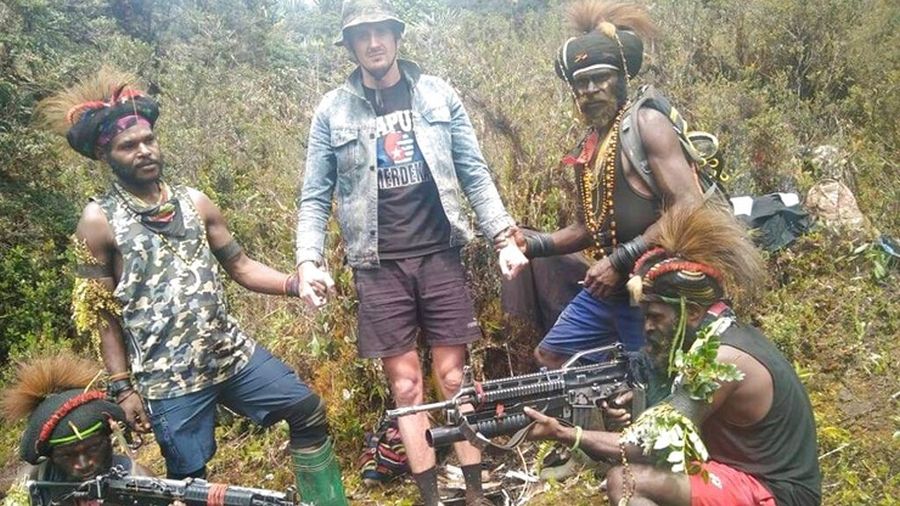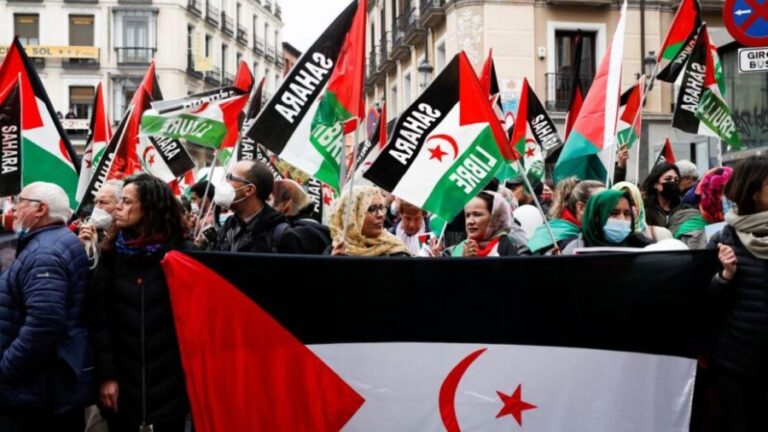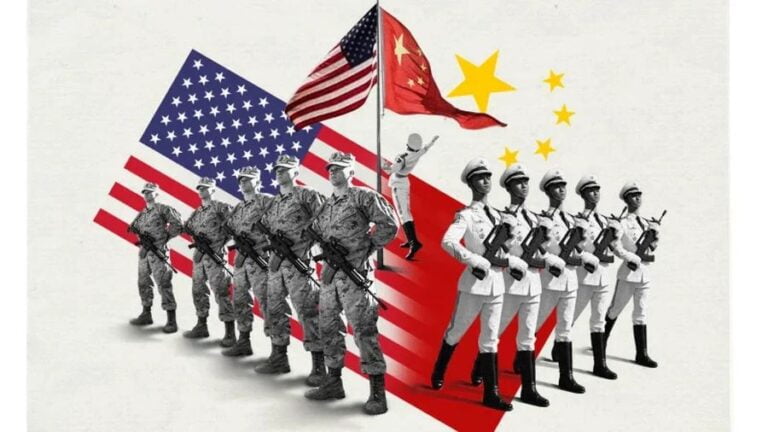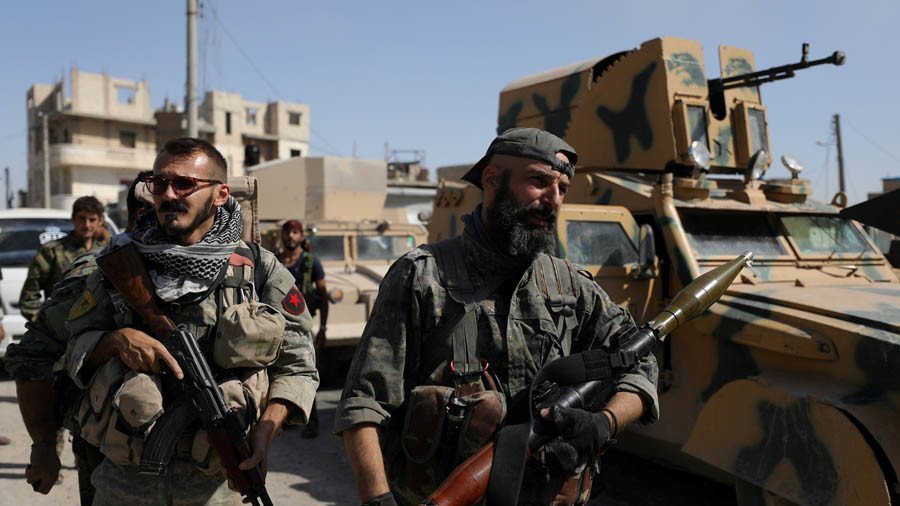The West Papua Independence Movement Is Making Itself Heard
On February 8, 2023 a plane belonging to the Indonesian airline Susi Air landed in the mountainous province of Papua Pegunungan, which is located in the Indonesian part of the New Guinea island. Soon, the six passengers of the plane and its pilot, New Zealander Philip Mertens, were taken hostage by members of the militant organization “West Papua National Liberation Army”, which advocates the independence of West Papua from Indonesia. Then the rebels burned the aircraft. Soon all the hostage passengers were released, but the pilot of the plane was left in captivity. The rebels stated that F. Mertens would be released only after the Indonesian authorities grant independence to the whole of West Papua, i. e. the entire Indonesian part of the island of New Guinea.
To show that everything is fine with the pilot of the plane, a citizen of New Zealand, on February 15, 2023, Papuan rebels provided the media with several joint photos with F. Mertens unharmed. The actions of the rebels have found approval among the residents of West Papua, a significant part of whom are in favor of independence from Indonesia.
The day after the incident, on February 9, 2023 Benny Wenda, the chairman of the United Liberation Movement for West Papua, which was created in 2014, expressed sympathy to the family of F. Mertens and stated that the organization he heads has nothing to do with the activities of the West Papua National Liberation Army. Mr. Wenda also stated that he stood for a peaceful way of obtaining sovereignty for West Papua. It should be noted that Mr. Venda enjoys less authority among the Papuans, the indigenous inhabitants of West Papua, than the rebels of the West Papua National Liberation Army. This is due to the presence in Papuan society of a traditional cult of force and militancy, because of which many Papuans are more impressed by the decisive actions of armed rebels than organizations aimed at long peace talks.
Although the movement for the independence of West Papua from Indonesia has existed since 1963, to date its supporters have not been able to create a united organization whose representatives could speak to the world community with a full-fledged political program. International media try to avoid covering the activities of supporters of a peaceful way to gain independence since in Indonesia the issue of granting sovereignty to West Papua is too acute. In turn, adherents of the forceful path of independence discredit themselves with their aggressive actions and uncompromising attitude during negotiations.
Before the era of colonialism, Papuans lived on the New Guinea island without any contact with other civilizations and led a traditional way of life. Indonesia, which gained independence in 1945 as part of decolonization, inherited the western part of the New Guinea island from the Netherlands. Historically, Papuans and Indonesians have never been united by anything, and for this reason, quite chilly relations have developed between the two ethnicities. A considerable part of Indonesian society is skeptical of Papuans, while many indigenous inhabitants of West Papua consider Indonesians invaders and occupiers. It should also be noted that West Papua is still technologically far behind the rest of Indonesia.
As a result, at the moment the relations between the two peoples are tense, and the interaction of Indonesians and Papuans is complicated.
Despite the strong discontent among the local population of West Papua with the rule of Indonesia, Jakarta has no plans to withdraw from this region as its subsoil is rich in minerals. The plans of the Indonesian leadership include the extraction of natural resources of West Papua. However, Indonesian energy companies are unable to start developing Papuan deposits, as the indigenous people of West Papua are hostile to foreigners and are ready to take any most cruel step to leave their resources untouched.
Being a multiethnic and multireligious state, Indonesia is forced to resort to a variety of measures to preserve its territorial integrity. Indonesian is the only official language in the country. Ethnic minority languages may be the second official languages in individual provinces, but all legally relevant documentation should still be kept only in Indonesian. Jakarta has also divided a number of regions where representatives of the same ethnicity live compactly into several provinces in order to weaken the influence of local governors and politicians, thus minimizing the risk of losing these territories. In particular, the part of New Guinea belonging to Indonesia, which has the generalized name “West Papua”, is actually divided into as many as 5 provinces.
Representatives of major world powers, such as the United States and China, try not to make strong statements about the status of West Papua and advocate for the territorial integrity of Indonesia. First of all, this is due to the fact that Indonesia is a state with a population of 275 million and a fairly large economy. Washington and Beijing are striving to build a friendly dialogue with Jakarta, as they see the Indonesian side as a favorable trading partner. In the case of hypothetical support for granting independence to West Papua, Indonesia is highly likely to minimize dialogue with the country that supports the separatists. In turn, the provinces of the Indonesian part of New Guinea are the poorest components of Indonesia. Therefore, if West Papua gains sovereignty, it will need a large number of subsidies and investments from outside to ensure the effective functioning of the state apparatus and a decent standard of living for its citizens, as well as to start extracting natural resources with the involvement of foreign capital.
It is worth noting that the independent Papua New Guinea located on the eastern half of the island does not support its fellow Papuans from the neighboring West Papua in their quest to create their own state. This can be explained by the fact that a hypothetical new country could most likely show a high crime rate and an uncertain foreign policy vector. It is more profitable for the authorities of Papua New Guinea to have a common border with relatively prosperous Indonesia than with unstable independent West Papua.
Based on the above, it can be assumed that the emergence of a new state in the Asia-Pacific region is rather improbable in the foreseeable future. Firstly, the world community is not interested in a confrontation with Indonesia over the secession of its resource-rich provinces. And secondly, there is currently no proper level of political unity among the leaders of the West Papua independence movement.
Nevertheless, if Indonesia ever faces a serious internal political crisis, the armed rebels of West Papua will theoretically be able to try and take power by force. However, without foreign political and material support, rebel groups are unlikely to be capable of defending their independence opposing regular units of the fairly well-armed and well-trained Indonesian army.






![Protestors at the Gaza-Israel border seen on the third consecutive Friday as part of the 'Great March of Return', on 13 April, 2018 [Mohammad Asad / Middle East Monitor]](https://astutenews.com/wp-content/uploads/2018/04/b3.jpg)
